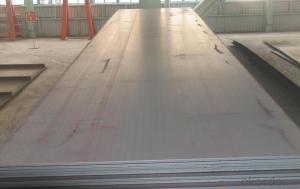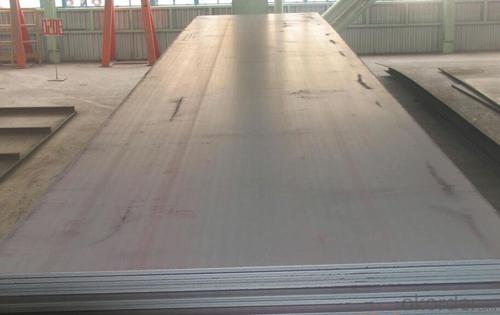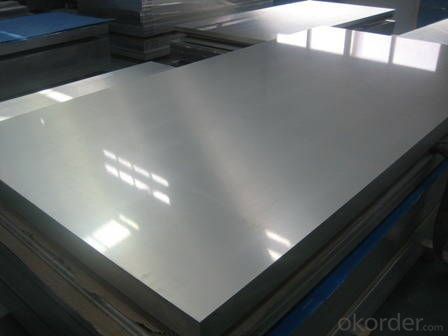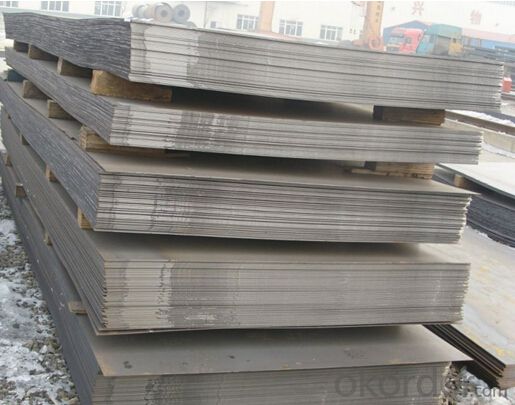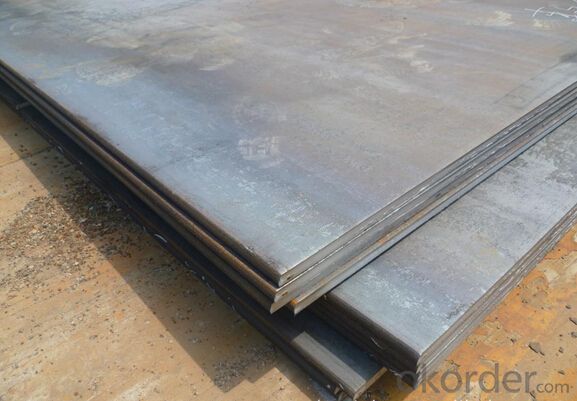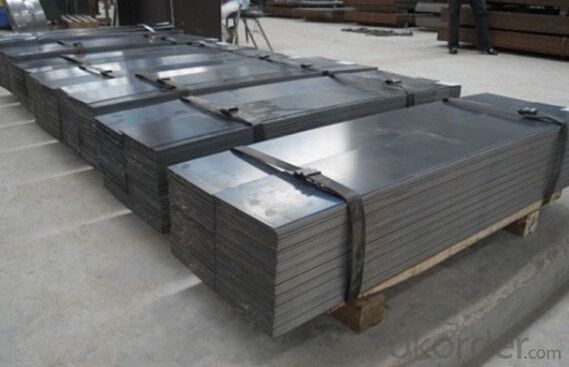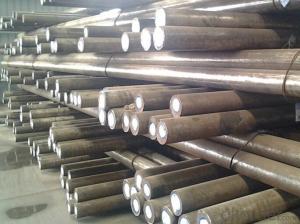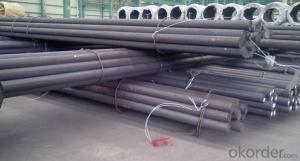ASTM A516 Grade 70 Pressure Vessel Steel Plate
- Loading Port:
- Tianjin
- Payment Terms:
- TT OR LC
- Min Order Qty:
- 3 m.t.
- Supply Capability:
- 100000 m.t./month
OKorder Service Pledge
OKorder Financial Service
You Might Also Like
Specification
ASTM A516 Grade 70 Pressure Vessel Steel Plate
Detailed Information of ASTM A516 Grade 70 Pressure Vessel Steel Plate
| C | Si | P | S | yield Strength MAp | Tensile strength MAp | Elongation % | ||
| A36 | 0.24 | 0.4 | 0.045 | 0.03 | 250 | 400-520 | 26 | |
| C | Si | Mn | P | S | Cu | |||
| A283 | ≤0.27 | 0.15-0.4 | ≤0.9 | ≤0.035 | ≤0.04 | ≥0.2 | ||
| Thickness: | 6mm, 8mm, 12mm, 16mm, 20mm, 25mm, 30mm, 50mm, 80mm, 100mm, 150mm, 200mm | |||||||
| Width: | 1500mm, 1800mm, 2000mm, 2200mm, 2500mm | |||||||
| Length: | 6000mm, 8000m, can cut to width and length | |||||||
| Packing Details; | according to customer‘s require or export’s standard | |||||||
| Delivery time; | 7 days for stock sizes, 20-25 days for new production sizes | |||||||
| Port: | Tianjin China | |||||||
Related Products Overviews of ASTM A516 Grade 70 Pressure Vessel Steel Plate
Product Name | Typical Grades | Diameter(mm) | Standard Adopted |
Carbon Steel | 20 (1020/S20C/C22) |
Ø16-Ø300 |
GB/SAE/ JIS/DIN |
40 (1040/S40C/C40) | |||
45 (1045/S45C/C45) | |||
Bearing Steel | GCr9 (51100/SUJ1) |
Ø12-Ø250 | |
GCr15 (52100/SUJ2/100Gr6) | |||
GCr9SiMn (A485-Gr.1/SUJ3) | |||
Cr-Mo Steel | 20Cr (5120/SCr420H/20Cr4) |
Ø12-Ø250 | |
40Cr (5140/SCr440/41Cr4) | |||
42CrMo(4140/SCM440/42CrMo4) | |||
Gear Steel | 20CrNiMo |
Ø16-Ø600 | |
20CrMn(5115/SMnC420/20MnCr5) | |||
20CrNiMo(8620/SNCM220/20CrMiMo2) |
Related Products Application of ASTM A516 Grade 70 Pressure Vessel Steel Plate
Carbon Steel | l Mold bottom l Plastic mold l Construction machinery parts l Automobile parts l Security grills l Screens l Construction |
Bearing Steel | l Aerospace l Navigation l Nuclear energy l Chemical industry l Electronic information l Petrochemical l Instrument and meter l Transportation |
Cr-Mo Steel | l Mechanism & Fasteners gear l Stressed components for vehicles l Engines and machines l Parts of larger cross-section |
Gear Steel | l All kinds of gears l Statically and dynamically stressed component for vehicles l Engines and machine l Larger cross-section parts l Crankshafts |
Company Introduction of ASTM A516 Grade 70 Pressure Vessel Steel Plate
CNBM International Corporation is the most import and export platform of CNBM group(China National Building Material Group Corporation) ,which is a state-owned enterprise, ranked in 270th of Fortune Global 500 in 2015.
With its advantages, CNBM International are mainly concentrate on Cement, Glass, Iron and Steel, Ceramics industries and devotes herself for supplying high quality series of refractories as well as technical consultancies and logistics solution.
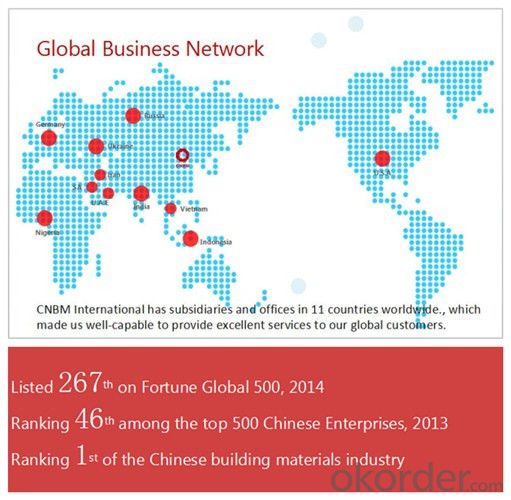
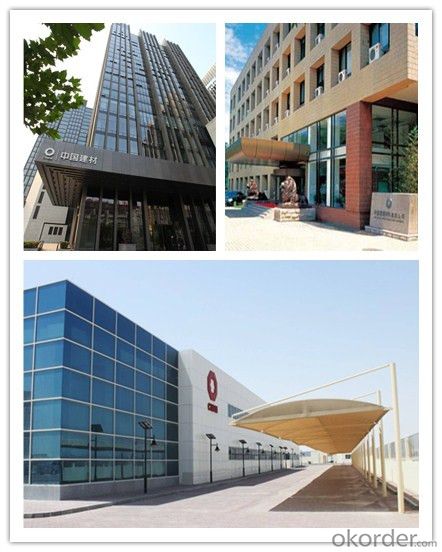
After-sale service | l CNBM provides the services and support you need for every step of our cooperation. We’re the business partners you can trust; you can relax and get on with doing business. l For any problem, please kindly contact us at any your convenient time, we’ll reply you in our first priority within 24 hours
|
Advantages
| l Industry experience over 20 years. l Shipment of goods -More than 70 countries worldwide. l The most convenient transport and prompt delivery. l Competitive price with best service. l High technical production line with top quality products. l High reputation based on best quality products.
|
Packaging & Delivery of ASTM A516 Grade 70 Pressure Vessel Steel Plate
Packaging Detail | Sea worthy packing /as per customer's packing instruction |
Delivery Detail | 15 ~ 40 days after receiving the deposit |
Products Show
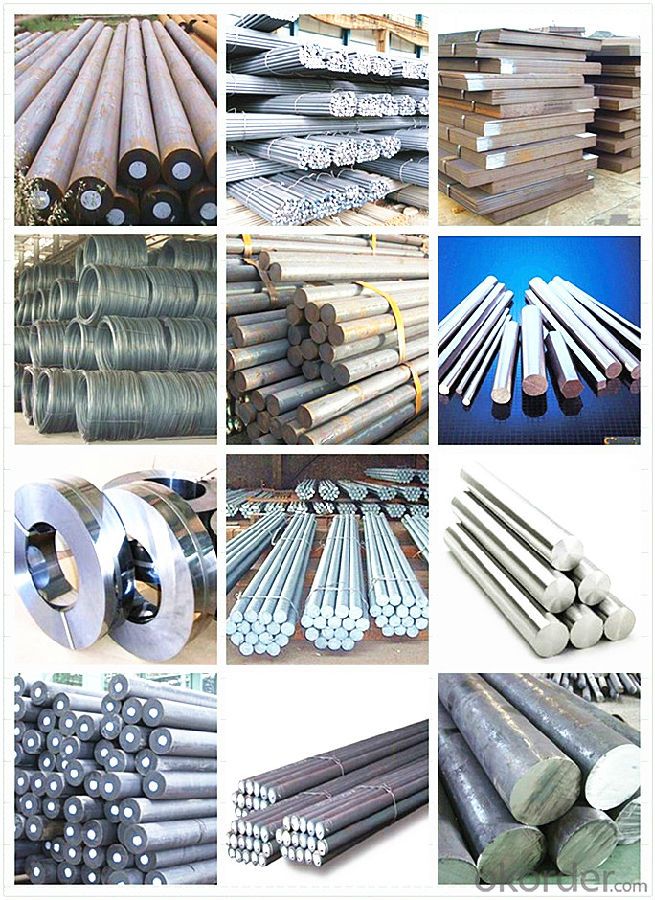
FAQ:
Are you a trading company or manufacturer? | Manufacturer |
What’s the MOQ? | 3 metric ton |
What’s your delivery time? | 15-35 days after downpayment received |
Do you Accept OEM service? | Yes |
what’s your delivery terms? | FOB/CFR/CIF |
What's the Payment Terms? | 30% as deposit,70% before shipment by T/T |
Western Union acceptable for small amount. | |
L/C acceptable for large amount. | |
Scrow ,Paybal,Alipay are also ok | |
Why choose us? | Chose happens because of quality, then price, We can give you both. Additionally, we can also offer professional products inquiry, products knowledge train (for agents), smooth goods delivery, excellent customer solution proposals. |
What's your available port of Shipment? | Main Port, China |
What’s your featured services? | Our service formula: good quality+ good price+ good service=customer's trust
|
Where are your Market? | Covering more than 160 countries in the world |
- Q: What is the hardness range of special steel?
- The hardness range of special steel can vary depending on the specific type and composition, but it typically falls within the range of 50 to 65 HRC (Rockwell Hardness Scale).
- Q: How does special steel perform in abrasive environments?
- Special steel performs exceptionally well in abrasive environments due to its high hardness, superior resistance to wear and tear, and excellent corrosion resistance. It is specifically designed to withstand the harsh conditions of abrasive environments, such as those with sand, gravel, or other abrasive particles. The unique composition and properties of special steel enable it to maintain its integrity and durability even when exposed to extreme abrasion, making it an ideal choice for applications in industries like mining, construction, and manufacturing.
- Q: What is the composition of special steel?
- The composition of special steel can vary depending on its intended use and the specific properties required. However, in general, special steel is typically an alloy of iron and carbon, with additional elements added to enhance its strength, toughness, corrosion resistance, or other desired characteristics. Some common elements that can be found in special steel compositions include chromium, nickel, manganese, molybdenum, vanadium, tungsten, and cobalt. These alloying elements are carefully selected and added in specific amounts to achieve the desired mechanical, physical, and chemical properties of the steel. The composition of special steel can be tailored to meet specific industry requirements, such as for applications in aerospace, automotive, oil and gas, or construction.
- Q: What is the chemical composition of special steel?
- Special steel is a type of steel that is specifically manufactured for particular applications, and its chemical composition varies depending on its intended use. However, some common elements found in special steel include iron, carbon, manganese, chromium, nickel, and molybdenum. The precise combination and quantities of these elements are carefully balanced to achieve specific properties such as enhanced strength, corrosion resistance, or heat resistance, making special steel ideal for specialized applications in industries like aerospace, automotive, and construction.
- Q: How is stainless steel used in the food and beverage industry?
- Stainless steel is widely used in the food and beverage industry due to its unique properties. It is corrosion-resistant, easy to clean, and does not impart any taste or odor to the food or beverage being prepared or stored. Stainless steel is used in various applications such as food processing equipment, storage tanks, utensils, and even in the construction of kitchen appliances. Its hygienic nature and durability make it an ideal choice for maintaining food safety standards and ensuring the quality of products in the industry.
- Q: How does the addition of nickel enhance the properties of special steel?
- The properties of special steel are enhanced in several ways through the addition of nickel. To begin with, the strength of steel is increased by nickel, resulting in enhanced durability and resistance to deformation. This is particularly crucial in situations where the steel will be exposed to high temperatures or heavy loads. Additionally, the corrosion resistance of steel is improved by nickel. When exposed to moisture or harsh chemicals, nickel forms a protective oxide layer on the steel's surface, preventing rusting or corrosion. This is particularly valuable in industries like marine, aerospace, and chemical processing, where steel is frequently subjected to corrosive environments. Furthermore, the toughness of steel is improved by nickel, allowing it to withstand impact or sudden temperature changes without fracturing or cracking. This makes it suitable for applications that require high resistance to shock or vibration, such as construction, automotive, or machinery manufacturing. Moreover, nickel enhances the heat resistance of steel. By increasing the steel's ability to retain strength and shape at high temperatures, nickel makes it suitable for use in high-temperature environments, such as power generation, oil and gas, or furnace systems. In conclusion, the addition of nickel to special steel enhances its strength, corrosion resistance, toughness, and heat resistance. These improved properties make nickel-enhanced steel highly desirable in a wide range of industries and applications, where durability, reliability, and performance under challenging conditions are of utmost importance.
- Q: What are the different corrosion-resistant grades of special steel?
- Various industries commonly use several grades of special steel that are resistant to corrosion. These grades are specifically designed to maintain their structural integrity and resist corrosion in harsh environments. Some examples of these corrosion-resistant grades of special steel include: 1. Stainless Steel: Stainless steel is widely used and highly popular for its corrosion-resistant properties. It contains at least 10.5% chromium, which forms a protective oxide layer on the surface, preventing corrosion. There are different types of stainless steel, such as austenitic, ferritic, and martensitic, each offering different levels of corrosion resistance. 2. Duplex Stainless Steel: Duplex stainless steel combines the corrosion resistance of both austenitic and ferritic stainless steels. It offers superior corrosion resistance compared to conventional stainless steel grades. With a high chromium content and other alloying elements like molybdenum and nitrogen, it provides enhanced resistance to pitting, crevice corrosion, and stress corrosion cracking. 3. Super Duplex Stainless Steel: Super duplex stainless steel is an even higher grade of corrosion-resistant steel compared to duplex stainless steel. It contains higher amounts of chromium and molybdenum, making it highly resistant to corrosive environments, such as seawater, chemicals, and acids. It is commonly used in offshore oil and gas industries. 4. Nickel Alloys: Nickel alloys, including Inconel and Hastelloy, are special steel grades with high corrosion resistance. These alloys have a significant nickel content, along with elements like chromium and molybdenum, which provide resistance to various corrosive environments, including high temperatures and acidic conditions. 5. Titanium Alloys: Titanium alloys are well-known for their exceptional corrosion resistance, particularly in aggressive media like seawater and chemical processing environments. These alloys have low density, high strength, and superior resistance to pitting, crevice corrosion, and stress corrosion cracking. 6. Aluminum Alloys: Certain aluminum alloys, such as 5052 and 6061, are also corrosion-resistant special steel grades. They form a protective oxide layer on the surface, offering excellent resistance to atmospheric corrosion. Aluminum alloys are commonly used in marine and aerospace applications. These examples represent only a few of the corrosion-resistant grades of special steel available. The selection of the appropriate grade depends on factors such as the specific corrosive environment, temperature, required mechanical properties, and other considerations related to the intended application.
- Q: How does special steel contribute to the manufacturing of aerospace components?
- Special steel plays a vital role in the manufacturing of aerospace components due to its unique properties and characteristics. Its exceptional strength, durability, and resistance to extreme temperatures and corrosion make it an ideal material for various applications in the aerospace industry. One of the main contributions of special steel to aerospace manufacturing is its ability to withstand high stress and pressure. Aerospace components, such as turbine blades, landing gear, and structural supports, are subjected to tremendous forces during flight. Special steel's strength and toughness allow these components to endure these forces without failure, ensuring the safety and reliability of the aircraft. Additionally, special steel's resistance to extreme temperatures is crucial in the aerospace industry. Aircraft engines, for example, operate at extremely high temperatures, and special steel alloys, such as those containing nickel or cobalt, are used to manufacture components like turbine discs and combustion chambers. These alloys can withstand the intense heat and prevent deformation or failure, ensuring optimal engine performance and efficiency. Furthermore, special steel's resistance to corrosion is essential for aerospace applications. Aircraft are constantly exposed to harsh environmental conditions, including moisture, chemicals, and saltwater. Special steel alloys, such as stainless steel, are highly resistant to corrosion, preventing degradation and maintaining the structural integrity of aerospace components over time. This is particularly important for critical parts like fuel tanks, hydraulic systems, and airframe structures. In conclusion, special steel significantly contributes to the manufacturing of aerospace components by providing strength, durability, resistance to extreme temperatures, and corrosion resistance. Its unique properties ensure the safety, reliability, and longevity of aerospace systems, making it an indispensable material in the aerospace industry.
- Q: What industries rely on special steel?
- Several industries rely on special steel, including automotive, aerospace, construction, energy, and manufacturing. Special steel is known for its exceptional strength, durability, and resistance to corrosion, making it an essential material in these sectors. It is used for various applications such as structural components, machinery parts, tools, pipelines, and turbines, among others.
- Q: How is special steel used in the automotive industry?
- Special steel is used in the automotive industry for various applications such as manufacturing engine components, transmission systems, and chassis parts. Its high strength, durability, and resistance to corrosion make it ideal for ensuring the safety, performance, and longevity of vehicles. Additionally, special steel is used in the production of specialized tools and machinery required for automotive manufacturing processes.
Send your message to us
ASTM A516 Grade 70 Pressure Vessel Steel Plate
- Loading Port:
- Tianjin
- Payment Terms:
- TT OR LC
- Min Order Qty:
- 3 m.t.
- Supply Capability:
- 100000 m.t./month
OKorder Service Pledge
OKorder Financial Service
Similar products
Hot products
Hot Searches
Related keywords
